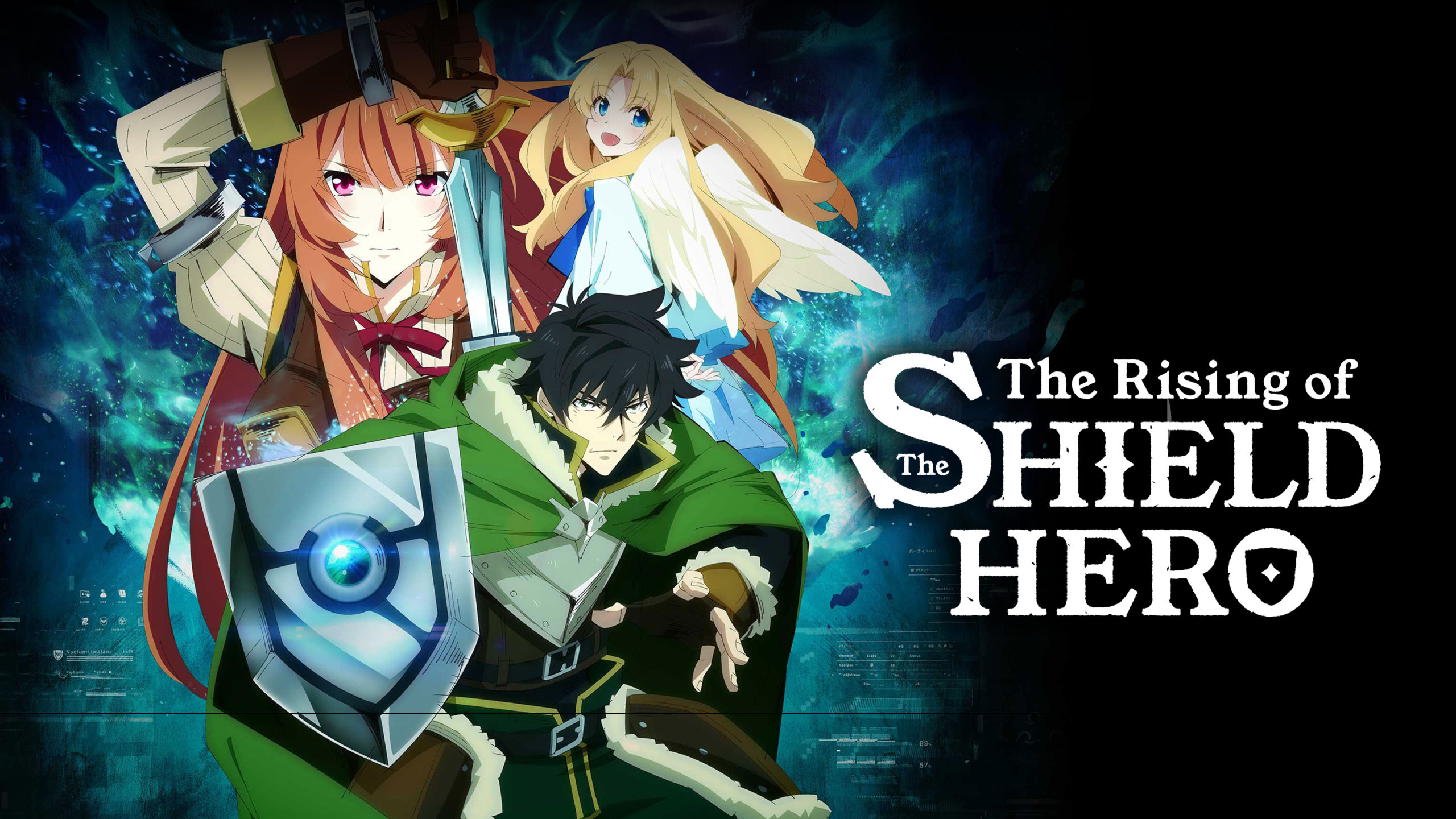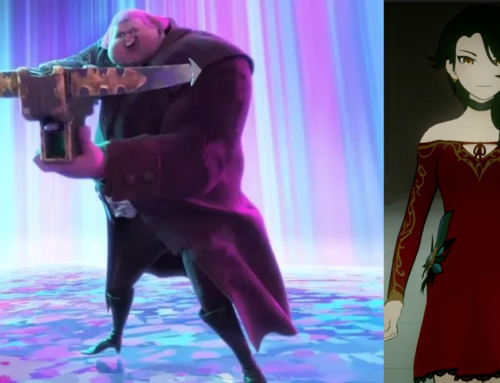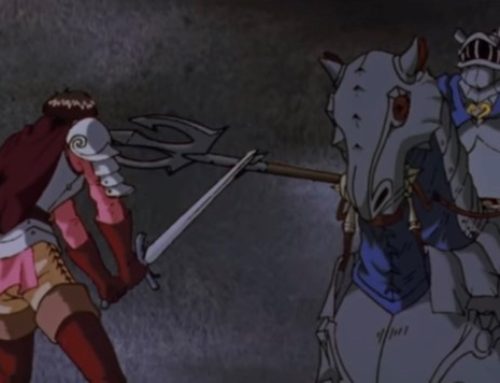I was recently listening to a reviewer roasting the Rising of the Shield Hero. He made a number of complaints about the show, but one in particular that stood out to me was the issue of the characters in the story being stupid.
For context, the Rising of the Shield Hero is an isekai in which four young men are brought to a fantasy setting from different versions of Japan in alternate universes to be their cardinal heroes to protect the world from waves of monsters using holy weapons: a sword, a bow, a spear, and a shield. Three of these four heroes immediately believe that the universe they’ve been pulled into is like a video game they used to play, and the fourth (the shield hero) is completely clueless about the mechanics of this universe. Due to stigma against the shield hero (either as a functionally useless weapon or due to the kingdom’s religion), only one person (the kingdom’s princess) joins the shield hero’s party, and on his first night in this new world, she falsely accuses him of attempted rape. The events that unfold from there result in the shield hero being ostracized and bitter towards this world where he’s been summoned, and at the same time he turns out to be the only one of the four heroes who is competent enough to handle the situation.
The other heroes’ mistakes can be summed up in four ways:
- Mistakenly believing that, because some of this new world’s mechanics work like a video game, then the entire world must also operate like a video game. The sword hero makes this mistake in assuming that corpses will just disappear after a while, resulting in a rotten corpse of a dragon he slew causing a dangerous plague. This mistake is especially interesting, because the vast majority of isekai run on this same video game logic.
- Trusting every attractive-looking woman in this setting, despite the fact that you’re a wealthy hero with access to money from the king and are propped up by the local church, and gold-diggers exist. The spear hero (appropriately) makes this mistake, to the extent that he continues to trust the princess after she is exposed as a liar for falsely accusing the shield hero.
- Believing that the other characters in the setting are like NPCs, or that completing “quests” will result in a golden ending. The bow hero is especially guilty of this. He takes out a powerful and wealthy baron because the peasants under his rule were too poor and thus must have been over-taxed, but the bow hero doesn’t replace the baron or consider what kind of government would replace the baron. This results in a lot of peasants discovering that they need to install the same tax policy as the baron to run the lands he used to rule, but now they need even more money to repair the damages that the bow hero caused.
- Initially ignoring the Spirit Turtle, a godlike entity (literally based on one of the four gods of eastern mysticism) because it isn’t directly related to the waves they were summoned to fight.
The first complaint that the reviewer had was that these three heroes were only acting like idiots because the story writer wanted to make the shield hero look good. The shield hero seems to be doing most, if not all of the work in protecting this world, and the other three are morons, with only the sword hero showing enough sense and self-awareness to make any progress. The question I have for this reviewer is: has he never worked on a group project for school before? It’s usually “one person does almost all the work, two of them are completely useless, and a third barely manages to help just enough to get them all a passing grade.”
The second complaint that the reviewer had boiled down to the villains and citizens of the kingdom being stupid as well. After framing the shield hero for attempted rape, the princess tries to get her sister killed so that she’ll be next in line for the throne. Her attempts at doing this involve schemes that she should have realized would eventually be exposed, such as having royal guards use a crystal ball to take footage of the shield hero protecting the crown princess, and editing the footage with “magishop,” or something to that extent. This plan would only work if all of the soldiers involved are loyal to the evil princess and none of them turn out to be whistleblowers. Most of the reviewer’s criticisms of the people in this fantasy world (especially the villains) are some variation of “the villains expect everyone to go along with their plans, and they’d be foiled (and presumably punished down the line) if someone broke ranks.”
My question for this complaint is: where has this reviewer been in the last two years? We’ve had so many scandals ever since the pandemic hit that people made memes about how the only difference between a conspiracy theory and the facts was a number of months. Lots of people in power think they’ll get away with crazy schemes, and part of the reason they think this way is because they get comfortable and think they’re untouchable. Alternatively, many of these schemes, like the evil princess’s plan to kill her sister, might have stayed on track long enough for her to do some permanent damage (e.g., her sister’s death), and by the time she’d be exposed, it wouldn’t matter; there’d be no other princess to inherit the throne, so she’d be next in line. Her position as royalty might be enough that it wouldn’t matter if she gets caught afterwards.
But this post is not about praising the Rising of the Shield Hero, or about ragging on the reviewer. What I want to focus on today is the subject of idiocy, and whether or not idiocy is an element of realism that needs to be sacrificed for the sake of story.
See, the problem with all of the idiotic actions taken by characters in this show is that they’re all believable under the circumstances. Three of the four heroes are established in the first episode to think that this fantasy world is like their video games, and they go into the world expecting to live the lives of isekai protagonists. Why would they expect corpses to rot and spread disease, or for the pretty waifus to be backstabbing gold-diggers? Why would they treat the video game world as anything other than a video game? Why would the wealthy princess with a reputation for terrible actions think she’ll ever face any kind of punishment (in the light novel, the shield hero isn’t the first person she’s falsely accused of attempted rape. He’s just the first to have some kind of holy-hero status to protect him from being executed. Essentially, the princess is an untouchable serial killer).
In real life, there are people who do terrible things just because they can, as it confirms to them that they’re actions don’t have consequences and that they stand above their victims in whatever societal hierarchy is present. There are also idiots who treat life like a video game, and they don’t even have the excuse of being brought in from another world to justify this stupid belief. There are also people who treat others around them like they are NPCs, whose lives don’t matter. Even the smaller things, like the bow and sword hero continuing to believe the princess’ accusation of the shield hero even after catching her cheating in a duel, make a lot of sense if the bow and sword hero don’t assume that catching the princess lying in one instance automatically retroactively mean she was lying in the other incident.
But none of this means that the reviewer’s complaints are without merit. Yes, the 18-21-year-old heroes act like buffoons in this show. Even the shield hero himself initially treats the world like he’s an isekai protagonist setting off on an adventure until he’s tried for attempted rape. They act…kind of like 18-21-year-olds. And the corrupt members of both the royal family and the church do some really dumb stuff, fully expecting to get away with them, like…a worryingly large number of people with power in real life. This entire story reminds me of the George Carlin quote: “think of how stupid the average person is, and realize half of them are stupider than that.” The story’s portrayal of human idiocy is tragically, very realistic.
But aren’t people in fiction supposed to be smarter than this? Isn’t there some rule that plots involving stupid people are inherently bad writing? For the sake of good story telling aren’t the characters supposed to act in ways we would find reasonable?
I think part of the problem I have with this is that I’ve never met or even heard of a single person who reads manga or watches anime who wasn’t a college student, a college grad, or college bound. While college does not automatically equate to intelligence, I do think the typical weeb is smarter than the average bear. And more importantly, spends most of their time blissfully surrounded by average or above average people, sheltered from the shear levels of stupid lurking out in the world today.
Imagine working for a robotics company where you travel with other mechanics to fix robots on factory lines in automotive manufacturing companies. You, and your fellow mechanics, need to travel to Indiana to fix their robots, and your superior-ranked mechanics who have more experience drive the car, in which you all carpool to Indiana. It’s payday, so the other mechanics decide to stop along the way to Indiana in a casino, and blow a sizeable amount of their paychecks on slot machines, in a place that is absolutely packed with other people doing the same thing. Then, after leaving the casino, the other mechanics drag you to a strip club along a freeway. Not a club in the middle of a town with a lot of traffic to bring in customers, a club out of the way where people had to actually get behind the wheel of a car and drive to the building, possibly for ten or twenty minutes, without coming to their senses at any point and turning the car around. The air in the building is loaded with cigarette smoke and rank perfume, and laced with a hint of pepper spray. Despite the ensuing oxygen deprivation, there are men who can still get stiff in this place. And the entire place is packed with more people blowing their paychecks on the smelliest women you could imagine.
People who act like the folks in this totally-hypothetical scenario are legion. There are probably more of them out there than you think. And remember, some of them fix robots on factory lines. They aren’t “stupid;” they’re average, or something close to it. It would be realistic to depict a world where people like this play an important role in your stories. It would be unrealistic to show a world where these people aren’t a part of daily life; entire economic industries wouldn’t exist without them. But I think to the average book reader, or anime fan, reality is unrealistic. I’ve noticed that movies can sometimes get away with dumber plots and dumber characters; I think this is because movies can draw in a wider audience from normal people and even legitimately stupid people; the kinds of people who don’t read books or manga, but can be entertained by a large screen in their faces with enough explosions.
The Rising of the Shield Hero isn’t escapist fantasy. It gets really dark in brutally mundane ways, it deals with subject matter most stories wouldn’t touch, it acknowledges that magic solutions don’t always exist and that things don’t get better overnight, and it is a masterpiece of realism applied to the isekai genre. But in order to do all of that, it has to commit a terrible taboo of storytelling by showing people making realistic mistakes, how those people might be in positions of power, or how an entire culture might accept inherently stupid beliefs because they’ve always done things that way.
I don’t believe that this is inherently bad writing, but I can definitely understand why someone would, and if it isn’t handled well, it can fall apart quickly. I may have to revisit this at some point, because it definitely shines a light on the question of where realism has to retreat for the sake of a good story.




